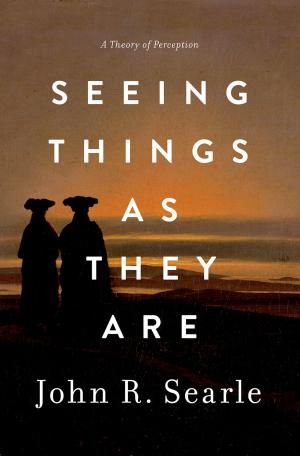Philosophical Papers
Nonfiction, Science & Nature, Science, Other Sciences, Philosophy & Social Aspects, Religion & Spirituality, Philosophy| Author: | Paul Humphreys | ISBN: | 9780190924492 |
| Publisher: | Oxford University Press | Publication: | December 21, 2018 |
| Imprint: | Oxford University Press | Language: | English |
| Author: | Paul Humphreys |
| ISBN: | 9780190924492 |
| Publisher: | Oxford University Press |
| Publication: | December 21, 2018 |
| Imprint: | Oxford University Press |
| Language: | English |
Paul Humphreys pioneered philosophical investigations into the methodological revolution begun by computer simulations. He has also made important contributions to the contemporary literature on emergence by developing the fusion account of diachronic emergence and its generalization, transformational emergence. He is the discoverer of what has come to be called `Humphreys' Paradox' in probability theory and has also made influential contributions to the literature on probabilistic causality and scientific explanation. This collection contains fourteen of his previously published papers on topics ranging from numerical experiments to the status of scientific metaphysics. There is also a previously unpublished paper on social dynamics. The volume is divided into four parts on, respectively, computational science, emergence, probability, and general philosophy of science. The first part contains the seminal 1990 paper on computer simulations, with three other papers arguing that these new methods cannot be accounted for by traditional methodological approaches. The second part contains the original presentation of fusion emergence and three companion papers arguing for diachronic approaches to the topic, rather than the then dominant synchronic accounts. The third part starts with the paper that introduced the probabilistic paradox followed by a later evaluation of attempts to solve it. A third paper argues, contra Quine, that probability theory is a purely mathematical theory. The final section includes papers on causation, explanation, metaphysics, and an agent-based model that shows how endogenous uncertainty undermines utility maximization. Each of the four parts is followed by a comprehensive postscript with retrospective assessments of each of the papers, replies to some responses, and in some cases elaborations of the original arguments. An introduction to the volume provides a general perspective on unifying themes that run through Humphreys' philosophical work.
Paul Humphreys pioneered philosophical investigations into the methodological revolution begun by computer simulations. He has also made important contributions to the contemporary literature on emergence by developing the fusion account of diachronic emergence and its generalization, transformational emergence. He is the discoverer of what has come to be called `Humphreys' Paradox' in probability theory and has also made influential contributions to the literature on probabilistic causality and scientific explanation. This collection contains fourteen of his previously published papers on topics ranging from numerical experiments to the status of scientific metaphysics. There is also a previously unpublished paper on social dynamics. The volume is divided into four parts on, respectively, computational science, emergence, probability, and general philosophy of science. The first part contains the seminal 1990 paper on computer simulations, with three other papers arguing that these new methods cannot be accounted for by traditional methodological approaches. The second part contains the original presentation of fusion emergence and three companion papers arguing for diachronic approaches to the topic, rather than the then dominant synchronic accounts. The third part starts with the paper that introduced the probabilistic paradox followed by a later evaluation of attempts to solve it. A third paper argues, contra Quine, that probability theory is a purely mathematical theory. The final section includes papers on causation, explanation, metaphysics, and an agent-based model that shows how endogenous uncertainty undermines utility maximization. Each of the four parts is followed by a comprehensive postscript with retrospective assessments of each of the papers, replies to some responses, and in some cases elaborations of the original arguments. An introduction to the volume provides a general perspective on unifying themes that run through Humphreys' philosophical work.















